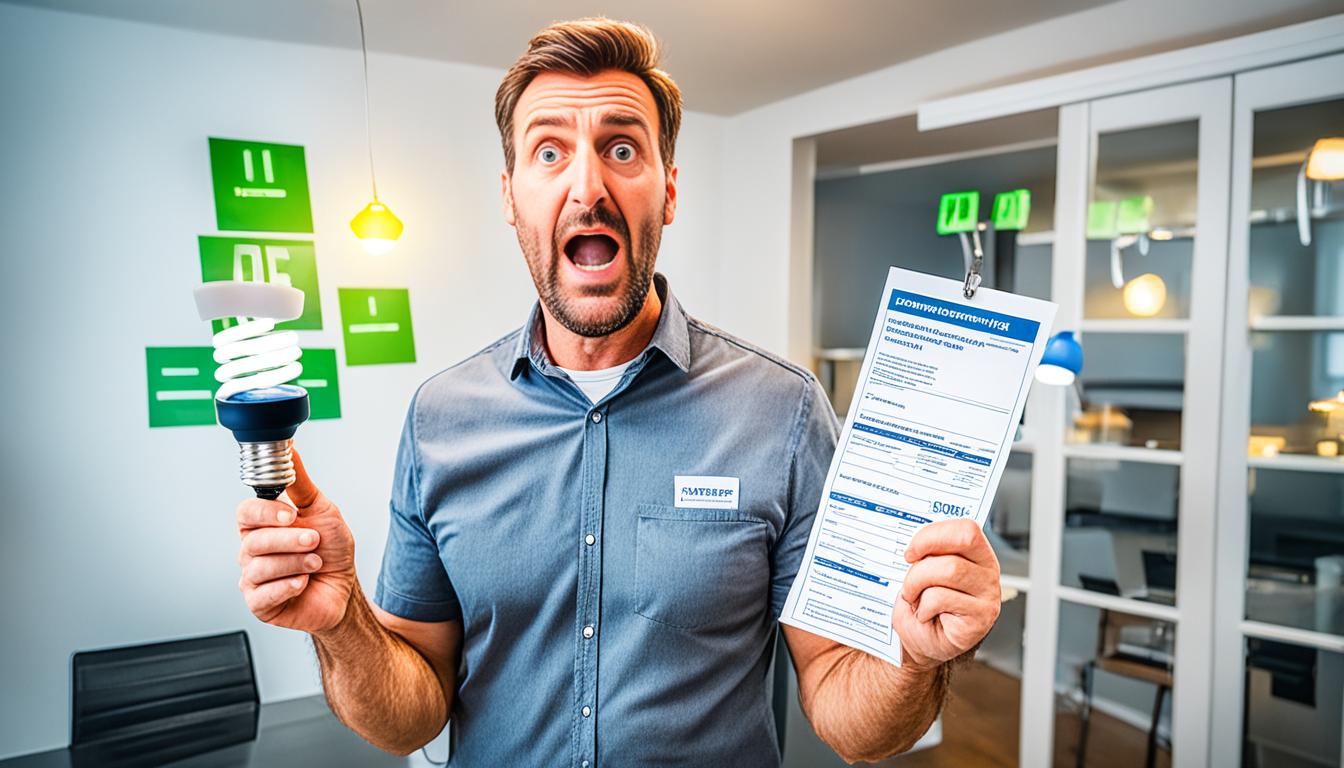Are you tired of seeing your small business’s electricity bills eat into your profits? Well, fear not! In this blog post, we will share with you some savvy tips and tricks on how to save electricity prices for your small business. From simple changes in behavior to investing in energy-efficient technology, we’ve got you covered. So sit back, relax, and get ready to see those electricity costs plummet!
How to Save Electricity Prices for Small Business?
Running a small business comes with many expenses, and one of the biggest costs is electricity. However, there are several strategies that small businesses can employ to save on electricity prices. By implementing energy-efficient practices and exploring affordable electricity tariffs, small businesses can significantly reduce their energy costs. This article will provide helpful tips and insights on how small businesses can save on their electricity prices and choose the best energy rates for their needs.
When it comes to affordable electricity tariffs for small businesses, it’s important to explore different options and compare business electricity rates. One effective way to save on electricity prices is to switch tariffs at the end of a contract. By proactively shopping around and comparing different business electricity rates from various suppliers, small businesses can find the best tariff for their specific needs and ensure they are getting the most affordable electricity rates possible.
Another valuable strategy for reducing electricity prices for small businesses is to conduct an energy audit. An energy audit provides a comprehensive overview of a business’s energy usage and helps identify areas of waste. Small businesses can either conduct audits themselves or seek assistance from specialist companies. These audits can reveal opportunities for energy-saving measures, such as upgrading equipment, implementing maintenance schedules, and improving insulation. Additionally, investing in energy management software can help businesses track and manage their energy usage more efficiently.
To optimize electricity costs, small businesses should also assess the efficiency of their equipment. Upgrading older, less-efficient equipment and implementing regular maintenance schedules can help improve efficiency and save on electricity costs in the long term. It is also important to encourage employees to practice energy-saving habits, such as turning off equipment when not in use and avoiding standby mode. Choosing energy-efficient appliances with high efficiency ratings can also result in significant energy and cost savings over time.
Finally, to create a sustainable energy-saving culture, small businesses should engage their employees. By educating employees about energy-saving practices, encouraging their participation in energy-saving initiatives, and implementing visible reminders such as energy-saving posters, small businesses can foster a collective effort towards reducing energy usage. Regular management meetings, equipment checks, and employee comfort considerations can further contribute to maintaining an energy-saving focus within the business.
Switch Tariffs at the End of a Contract
One effective way for small businesses to save on electricity prices is to switch tariffs at the end of a contract. When a contract ends, businesses are often moved to more expensive out-of-contract rates. By proactively shopping around and comparing different business electricity rates from various suppliers, small businesses can find the best tariff for their specific needs and ensure they are getting the most affordable electricity rates possible. It is essential to consider factors such as the type of tariff, contract length, exit fees, and potential discounts offered by suppliers.
When switching tariffs, small businesses can take advantage of the opportunity to evaluate their energy requirements and explore available options in the market. Comparing business electricity rates can reveal potential savings and allow businesses to choose the most cost-effective plan. It’s important to consider not only the price per unit but also any additional fees or discounts offered by suppliers.
Small businesses should consider whether a fixed-rate or variable-rate tariff is more suitable for their needs. A fixed-rate tariff offers price stability, ensuring that the energy costs remain the same throughout the contract period. On the other hand, a variable-rate tariff may provide flexibility as it can fluctuate with market prices. Analyzing business electricity rates for different tariff types can help small businesses determine the best option for their budget and consumption patterns.
Contract length is another important factor when switching tariffs. Some suppliers offer longer-term contracts with potentially lower rates, while others provide shorter-term contracts that offer more flexibility. By considering the length of the contract, small businesses can align their energy needs with the most suitable tariff duration.

Exit fees should also be taken into account when switching tariffs. Some suppliers may charge fees if businesses terminate their contracts before the agreed-upon period. Small businesses should carefully evaluate these fees to ensure that potential savings from switching tariffs outweigh the costs associated with early termination.
Lastly, businesses should inquire about any discounts or incentives available from suppliers. Some energy providers offer promotional rates or loyalty discounts to attract and retain customers. By researching and comparing business electricity rates from different suppliers, small businesses can identify the best energy rates that align with their budget and requirements.
In conclusion, switching tariffs at the end of a contract is a strategic approach for small businesses to save on electricity prices. By comparing business electricity rates and considering factors such as tariff type, contract length, exit fees, and potential discounts, small businesses can find the most affordable electricity rates for their specific needs. Taking proactive steps to switch tariffs can result in significant cost savings and contribute to the financial sustainability of small businesses.
Conduct an Energy Audit
Reducing energy usage and improving energy efficiency are key steps towards lowering electricity costs for small businesses. One effective strategy to achieve these goals is by conducting an energy audit. An energy audit provides a comprehensive assessment of a business’s energy consumption, identifying areas of waste and opportunities for improvement. Businesses can either perform audits themselves or enlist the help of specialist companies to ensure a thorough evaluation.
During an energy audit, various aspects of the business’s energy usage are examined, including lighting, heating and cooling systems, equipment, insulation, and overall energy management practices. By analyzing these factors, businesses can uncover energy-saving measures that can contribute to significant cost reductions.
An energy audit is like a detective solving the mystery of wasted energy. It helps identify the culprits and reveals energy-saving opportunities that businesses may have overlooked.
One common finding during energy audits is the need for equipment upgrades. Outdated and inefficient equipment can consume excessive amounts of energy, leading to higher costs. An audit can highlight the potential benefits of replacing or retrofitting equipment with energy-efficient alternatives. Additionally, maintenance schedules can be implemented to ensure equipment operates at maximum efficiency.
Improving insulation is another area where energy audits can provide valuable insights. Properly insulating buildings can help prevent heat transfer, reducing the reliance on heating and cooling systems and, in turn, reducing energy consumption. Audit reports can recommend insulation upgrades, such as sealing gaps, adding insulation materials, and improving the building envelope.
Furthermore, investing in energy management software can facilitate better tracking and management of energy usage. These software solutions provide businesses with real-time data on energy consumption, enabling them to identify patterns, set energy-saving targets, and make informed decisions. By utilizing energy management software, businesses can monitor their progress and continually optimize their energy-saving efforts.
Overall, conducting an energy audit enables small businesses to gain a comprehensive understanding of their energy usage and identify energy-saving measures that can lead to substantial cost savings. By upgrading equipment, implementing maintenance schedules, improving insulation, and leveraging energy management software, businesses can reduce their energy consumption, lower electricity prices, and contribute to a more sustainable future.

The Benefits of Conducting an Energy Audit:
- Identifies areas of energy waste
- Reveals opportunities for equipment upgrades
- Highlights insulation improvements
- Helps establish energy-saving targets
- Enables ongoing tracking and optimization of energy usage
Optimize Equipment Efficiency and Usage
In order to maximize energy usage and reduce electricity costs, small businesses should prioritize assessing the age and efficiency of their equipment. Upgrading older, less-efficient equipment can significantly improve energy efficiency, resulting in long-term savings. Implementing regular maintenance schedules to ensure that all equipment is operating at peak performance is also crucial for maintaining efficiency and avoiding unnecessary energy waste. By optimizing equipment efficiency and usage, small businesses can reduce their overall energy consumption and lower electricity costs.
Encouraging employees to practice energy-saving habits is another essential aspect of optimizing equipment efficiency. This includes **turning off equipment when not in use** and avoiding the standby mode, as even equipment in standby mode continues to consume energy. By raising awareness about the importance of energy-saving practices, small businesses can create a culture of energy efficiency within the workplace.
Choosing energy-efficient appliances with high efficiency ratings is another effective strategy for saving energy and reducing costs. When purchasing new equipment or appliances, businesses should look for products that are specifically designed to be energy-efficient. These appliances are designed to use less energy while still providing the same level of performance, resulting in significant energy and cost savings over time.
Here is an example of a table comparing the energy efficiency ratings of different types of office equipment:
| Equipment | Energy Efficiency Rating |
|---|---|
| Desktop Computers | Energy Star Certified |
| Printers | A++ |
| Copiers | A |
| Refrigerators | Energy Star Certified |
By investing in energy-efficient appliances, small businesses can reduce their energy consumption and lower their electricity costs. It is important to consider the long-term benefits and potential savings when making equipment purchasing decisions.
Overall, optimizing equipment efficiency and usage is a crucial step in achieving energy savings and reducing electricity costs for small businesses. By upgrading equipment, implementing regular maintenance, encouraging energy-saving practices among employees, and choosing energy-efficient appliances, small businesses can make significant strides in improving efficiency and reducing energy waste.

Engage Employees and Foster Energy-Saving Culture
To effectively reduce electricity costs, small businesses should engage their employees and foster an energy-saving culture. By educating employees about energy-saving practices, encouraging them to participate in energy-saving initiatives, and implementing visible reminders such as energy-saving posters, small businesses can create a collective effort towards reducing energy usage.
Regular management meetings to discuss progress and new ideas, as well as regular equipment checks and walkthroughs, can also contribute to maintaining an energy-saving focus within the business. By involving employees in the decision-making process and providing them with opportunities to share their ideas and suggestions, businesses can harness the power of employee engagement to drive energy-saving measures.
Furthermore, it is important to consider employee comfort by encouraging appropriate clothing choices for the weather to reduce the need for excessive heating or cooling. By promoting a comfortable working environment, businesses can help create a positive energy-saving culture that benefits both the company and its employees.
FAQ
How can small businesses save on electricity prices?
Small businesses can save on electricity prices by implementing energy-efficient practices and exploring affordable electricity tariffs. Switching tariffs at the end of a contract and conducting an energy audit are also effective strategies.
How do I switch tariffs at the end of a contract?
To switch tariffs at the end of a contract, small businesses should shop around and compare different business electricity rates from various suppliers. Consider factors such as the type of tariff, contract length, exit fees, and potential discounts offered by suppliers.
What is an energy audit and how can it help reduce electricity costs?
An energy audit provides a comprehensive overview of a business’s energy usage and helps identify areas of waste. Small businesses can conduct audits themselves or seek assistance from specialist companies. Energy audits reveal opportunities for energy-saving measures like upgrading equipment, implementing maintenance schedules, and improving insulation.
How can I optimize equipment efficiency and reduce electricity costs?
Assess the age and efficiency of business equipment. Upgrading older, less-efficient equipment and implementing regular maintenance schedules can improve efficiency and save on electricity costs. Encourage employees to practice energy-saving habits like turning off equipment when not in use and avoiding standby mode. Consider choosing energy-efficient appliances with high efficiency ratings.
How can I engage employees and foster an energy-saving culture?
Educate employees about energy-saving practices and encourage their participation in energy-saving initiatives. Implement visible reminders such as energy-saving posters and hold regular management meetings to discuss progress and new ideas. Conduct regular equipment checks and walkthroughs to maintain an energy-saving focus within the business.




